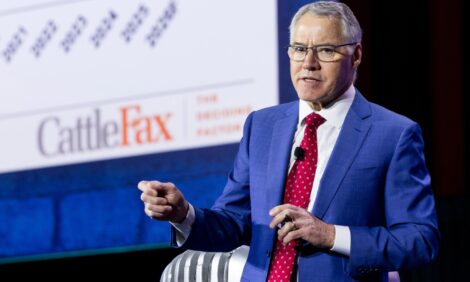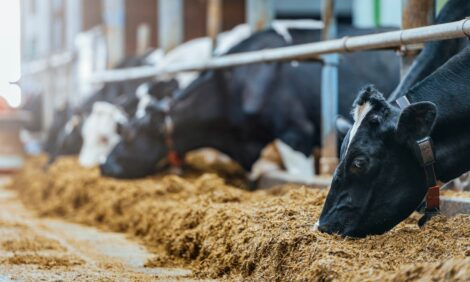



Brazil Livestock and Products Semi-Annual Report 2009
The adverse impact of the world financial crisis brings uncertainty to Brazilian beef and pork exporters in 2009, according to the USDA Foreign Agricultural Service. Both beef and pork exporters face reduced demand from their most traditional import markets. In the domestic market, demand for pork is forecast to increase slightly due to high retail beef prices during a period where the rate of unemployment is increasing among Brazilians.Executive Summary
Post revised production and export forecasts for Brazilian beef in 2009 to reflect new estimates made by trade sources. These estimates reflect the current mood among Brazilian exporters as they face uncertainty in the world market due to the credit crunch. Beef production will likely drop for the second consecutive year due to a continued shortage of cattle, reduced exports, lower domestic demand, and financial constraints faced by several beef packers in Brazil. The outlook for pork also calls for a small drop in production and exports, but some growth in domestic demand as pork prices are competitive with beef prices in the retail market.
The outlook for the Brazilian economy in 2009, although better than other emerging markets, does not support an increase in domestic demand for animal protein, as unemployment rates are higher due to the imp act of the world financial crisis in different sectors of the economy. Most market analysts project a 1 to 2 perc ent increase in the Brazilian economy this year.
Commodity Outlook, Beef
Production
Post revised beef production in 2009 to decline by one percent from last year. This reflects our estimate for a small decline in beef exports in 2009, roughly the same level as 2008, and a small drop in domestic consumption due to the high price of beef compared to other proteins. Consumer purchasing power is expected to deteriorate in view of the impact of the world economic crisis in the Brazilian economy. In addition, the Brazilian cattle cycle faces an upward price cycle due to the high levels of cow slaughter in recent years. This is also projected to impact packers’ profitability as can be seen by the high number of packers that have filed for protection from creditors under the local equivalent of U.S. Chapter 11 bankruptcy law.
Trade
Post revised beef exports downward by 1 percent in 2009 due to the impact of the current world credit crunch affecting the most traditional importers of Brazilian beef. In 2009, packers will focus their market promotion in the Middle East, Indonesia, Morocco and China. They also count on the recent opening of the Chilean market and a higher number of accredited farms to increase exports to the European Union offsetting some of the losses in other traditional markets.
Brazilian beef exports dropped in 2008 by nearly 18 percent. The total volume exported, including variety meats, was 1.314 million metric tons versus 1.586 million metric tons in 2007 – PWE equivalent. However, the total value exported increased by nearly 17 percent and reached US$ 5.081 million, versus US$ 4.354 million in 2007, reflecting an increase of over 40 percent in the average export price.
The three most important markets for Brazilian beef showed major declines in imports during 2008. Russia, the most important market, accounted for nearly 30 percent of all exports, even though exports declined by nearly 16 percent in 2008. The European Union remained as the second largest export market for Brazilian beef, despite a decline of 56 percent in exports during 2008 due to the problems of accreditation of Brazilian cattle farms. Venezuela and Iran were the third and fourth, largest importers in 2008.
Further Reading
| - | You can view the full report by clicking here. |
List of Articles in this series
To view our complete list of Livestock and Products Annual, and Semi-Annual reports, please click hereMarch 2009


